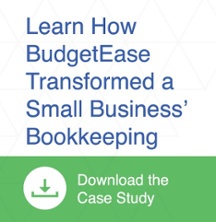 With more people shopping online, it’s a great time to be in the e-commerce business. If you’re like other e-commerce businesses, it’s likely that you need help with your bookkeeping. There are a lot of moving parts and managing them is no easy task. Hot topics in e-commerce bookkeeping are:
With more people shopping online, it’s a great time to be in the e-commerce business. If you’re like other e-commerce businesses, it’s likely that you need help with your bookkeeping. There are a lot of moving parts and managing them is no easy task. Hot topics in e-commerce bookkeeping are:
Revenue Recognition
When it comes to recording revenue in an e-commerce business there are two parts. Sales should be recorded based on when the sale is made regardless of when the payment is received. If you make a sale on October 31st and receive payment on November 2nd, it is still an October sale.
Then there is the matter of fees. There are a lot of fees associated with online sales. When you receive payment, it is inclusive of merchant fees, credit card fees, and sales tax at the very least. Depositing the totality as revenue is incorrect. Fees need to be recorded separately so as not to throw off revenue.
Sales Tax
Arguably, the most difficult part of e-commerce bookkeeping is managing sales tax. Each state has their own rules so managing the taxes can be mind numbing. We found a solution using an app call Avalara. You can read more about that by clicking here.
Inventory
An important part of any business is inventory. Having an e-commerce business has its own set of pain points including managing sales across several different channels. There are also returns to consider. We have identified a solution for the malarkey using Webgility (see how we can implement it for you by clicking here).
Cost of Goods Sold (COGS)
Calculating the cost of goods sold includes every cost involved in selling your products. COGS are direct costs associated with sales of your product or service. They include:
- The amount paid to a supplier for your materials or goods
- Costs associated with fabricating your goods
- Packing (if unique)
- Freight costs associated to obtain your raw material or products for resale
The Routine Stuff
In addition to the unique issues involved in being an e-commerce business, you still need to perform routine bookkeeping. This means you need to:
- Reconcile all bank and credit cards monthly
- Record and pay Sales and Commercial Activity Tax (in Ohio)
- Prepare and properly record payroll
- Review financial statements for accuracy and completeness
There is a lot involved in bookkeeping, but even more so with an e-commerce business. Find out how we can help you at www.budgetease.biz.





